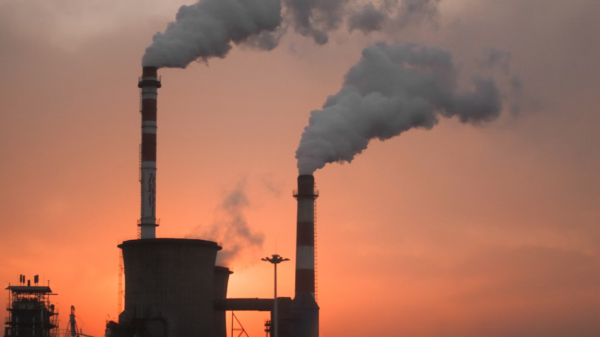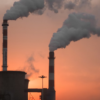Roar writer Scarlett Yu explores Joe Biden’s withdrawal of the KeyStone XL Pipeline construction plans and pursuit of climate justice.
Following his inauguration as America’s 46th president, Joe Biden seeks to bring profound reforms and build lost connections for a wounded nation. One of the most prominent changes made on his first day at the White House is the signing of executive orders regarding America’s re-entry into the Paris Climate Agreement.
This not only serves as a determined step towards Biden’s sombre promise to heal the nation’s respective wounds, but also sets the stage for America’s new position in tackling climate change, of which its effects and ramifications have become alarmingly severe.
By enforcing a clear national attitude in combating climate change, Biden has effectively reshaped the country’s major industrial activity concerning greenhouse gas emissions – now faced with a grave and uneasy goal of restraining warming to below 1.5 degree Celsius.
This is the collective objective which the countries within the Paris Climate Agreement must achieve to succeed in building a climate-neutral world by the mid-century, an enormous task requiring effective economic restructuring and social transformation. It will be exciting to see how America is going to contribute to this massive global approach to climate maintenance.
Among these efforts to re-establish America’s role in responding to the escalating climate crisis, one of the most striking changes Biden has imposed is the withdrawal of KeyStone XL Pipeline’s construction plans. For those who aren’t familiar with it, the KeyStone Pipeline is a system of oil pipelines that carries 1.3 million barrels of oil per day to multiple refineries and pumping stations in Midwest America.
Based in a Canadian energy company called TransCanada, the oil pipelines originated in Alberta and crossed thousands of miles of land to America, shipping opulent quantities of oil and supporting the oil refinery businesses in America. It was a considerably profitable construction, benefiting the economic wellbeing of both countries and furthering their allied relation.
However, things took an unexpected turn when TransCanada proposed to build another pipeline. Mirroring the system of the original Keystone Pipeline, it would drastically harm the surrounding areas of natural land where the new pipeline took place. This newly proposed oil transport system, the KeyStone XL pipeline, is effectively a faster and more direct route for oil transmission compared to its neighbouring pipeline; a straight structured route between the oil sands of Alberta, Canada and Steele City, and thus connecting to nearby existing pipelines. At the heart of the issue, however, would be the pipeline’s disastrous long-term impact on numerous ecosystems and biomes.
As this major construction is set to damage extensive stretches of untainted, natural land, it not only disrupts the wider environment, but would ultimately threaten to annihilate numerous endangered species. One such example is the whooping crane. Every year, these birds fly a total distance of 2,400 miles across the Canadian American border.
The pipeline operations are driven by power lines cutting directly through the whooping cranes’ 170-mile migration corridor. With their migratory route obstructed, bird mortality rates will rise due to inevitable pipeline collisions. Considering the severe effects that the pipeline construction could have on a wealth of species, it is certainly unethical, selfish, and careless.
Indeed, one can’t ignore its potent economic vigour, providing job opportunities on all sides of the energy pumping business. However, the eminent destruction of beautiful and enriching habitat would lead to an uncontrollable ecosystem decline, where varying species go extinct and opulent pieces of land are seized away.
There would be a burgeoning depletion of life and environmental circulation. Plus, once the pipeline is built across the cities, it’s unlikely for the natural damage to be repaired and return to its usual richness. Looking at the ambitious pipeline construction plans from this perspective elicits the complex and frustrating issue of collision between human activity and moral judgement.
As a result, the Keystone XL Pipeline remains a highly disputed issue. While profit-driven businesses involved in extracting energy resources agree to the plan, many environmentalists object to mindless eradication of valuable lands and ecosystems due to human exploitation. Exhilaratingly, on this sensitive matter, Joe Biden has acted up by rebuking the Keystone XL Pipeline permit, opposing the decisions and principles his predecessor upheld.
With America’s entry into the Paris Climate Agreement and, specifically, Biden’s immediate orders to cancel the Keystone XL Pipeline, one can hopefully envision a stable and efficient future unaffected by the dangers of global warming.
However, the controversial nature of climate change continues, extending in force with an ever-streaming flow of heated debate and contested opinions among the public – notably because it tends to pull people in social dilemmas that draw their moral judgements and justice of their personal beliefs into question.
Where do you stand in this matter – on the security of economic prosperity or environmental conservation?
















